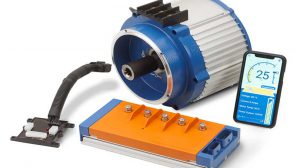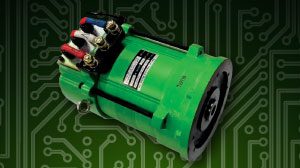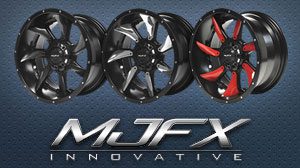
By Jordan Fuller
Checking out a new fleet to invest in for your course patrons’ use? Here’s everything you need to know about choosing golf cars for your course.
There’s a lot that goes into running a golf course, especially behind the scenes. Most golfers never see what goes on in the background to keep the course pristine and playable, but there’s one thing that they do experience a lot of… The golf cars.
Poorly maintained golf cars can be a hugely negative experience for golfers. But if they’re in great condition, they not only keep your golfers happy, but they keep them safer too. And keeping a good fleet starts with buying decent golf cars.
Here’s everything you need to know about choosing golf cars for your course. Buying the right cars can set you off on a good foot. But opting for lower-quality ones could be the first step along the way to problems.
Are the Golf Cars New or Refurbished?
New golf cars are a clean slate. But they’re more pricey. It’s the best way to start if you’re able—when you have a full fleet of brand-new golf cars, it’s easier to maintain them over time when small things start to wear away.
The next option is refurbished golf cars. These cars have undergone some renovations—perhaps it has had an engine overhaul or had some body work done. These can be good options, as they’re often more affordable, and some of them can be in amazing condition.
Do your research, though—they’re not all decent. It’s a good idea to buy from a reputable dealer rather than a random person on Craigslist.
What’s the difference between refurbished and used? Used golf cars come “as is”—no upgrades, improvements, or overhauls. Not always a great choice—they may be cheap, but you never know what could be wrong with them.
The Type of Golf Car You Want
You’ll have to choose between gas or electric golf cars. It’s really down to personal preference, but each one does have its pros and cons.
Electric Golf Cars
Electric golf cars are low-maintenance, which is a bonus. Change the battery once every 4 to 5 years, and aside from regular charging, there’s not much else you have to do to maintain them.
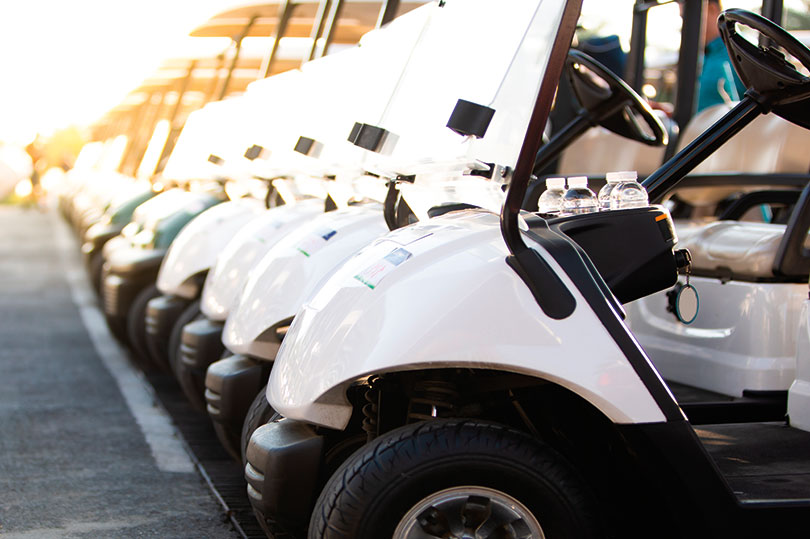
They’re also nice and quiet, plus they don’t give off smoke or fumes. They do, however, have a shorter run time and distance than gas carts.
Pros
• Cost-effective
• Eco-friendly
• Low-maintenance
• Quieter than gas golf cars
• More versatile
Gas Golf Cars
Gas golf carts need a bit more maintenance—typically a service every year (or two, if they’re well looked after). They’re a good bit more powerful than electric cars, so if your course is hilly, they may be the better choice.
The biggest advantage is that they can run for a lot longer on a tank of gas than an electric one can run on one charge. Of course, the downside is that gas is expensive, and they’re also pretty noisy in comparison to electric ones.
Pros
• More powerful, especially for hilly or uneven terrain
• They can go faster
• Longer range
• Low carbon emissions
• Easier to refill the tank
• Can be used on roads
What Size Golf Car Should You Get?
Do you want only two-seaters, or are you planning to include a few bigger cars? It’s a good idea to have a few of both, but keep in mind that larger golf cars are going to be pricier, heavier, and heavier on gas.
It’s likely to work out best if you fill the majority of your fleet with two-seaters but have a few larger ones available if a bigger group does want a four-seater.
Should You Accessorize the Car?
If your golf cars aren’t going on the road, you don’t need to worry about them being street-legal. But you can still accessorize them to a point—GPS and rangefinding capabilities are becoming a sought-after feature on golf cars, for example.
Depending on where your course is situated, you may also consider installing air conditioning for the benefit of your golfers or mounted coolers so golfers can carry snacks and keep their drinks cool in warm weather.
Factors to Consider When Selecting Golf Cars for Your Course
When shopping for golf cars for your course, consider the following factors. Don’t neglect any of them—you need to be sure the cars are right for what you need, all-round.
Safety
Are there any potential safety hazards? Was the car recently in an accident where the structure could be compromised? Are the tires in good condition, with ample tread?
Remember, the last thing you want is a golfer suffering a golf car accident due to a fault in the car. Make sure the ones you choose are in pristine condition, whether they’re new or refurbished. This may involve getting a technician to check them out first.
Durability
Is the golf car made out of good quality materials? Or is one bump likely to crack the plastic sides? You want cars that are going to last a long time, not need to be replaced in a few years again.
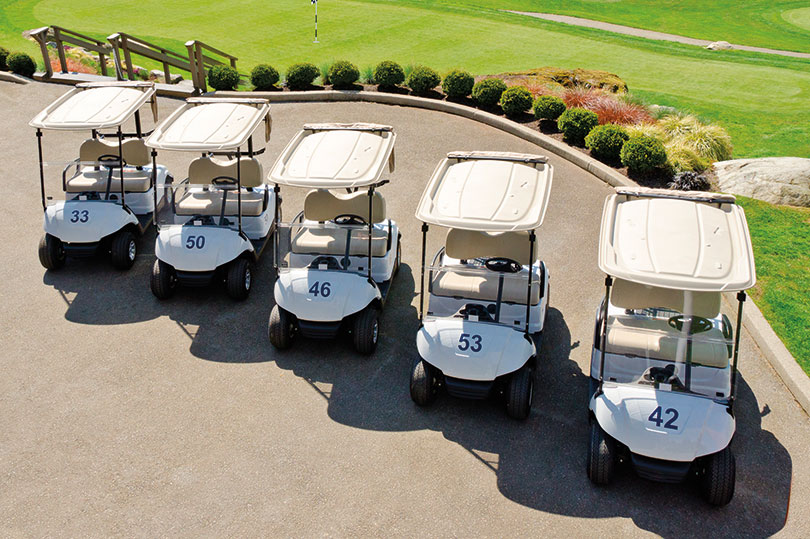
Don’t skimp here… It can be tempting to choose cheaper golf cars but remember, you never know how golfers are driving them out there. Keep yourself covered by providing the best quality golf cars to your patrons.
Warranty
You may not get a warranty on a refurbished golf car, but double-check with the seller. When buying new, you’ll definitely get a warranty, however, make sure it covers you for everything.
Maintenance Requirements
Consider what maintenance you may have to do on the golf car. Thinking about this upfront can help you estimate costs and make the right decision. Some dealerships have service plans for golf carts, so check when you buy.
If they don’t offer this, do a bit of research on motor maintenance, bodywork, and so on. Knowing what you need to consider can make life a lot easier down the line.
Availability of Parts & Accessories
Make sure the parts and accessories that your golf cart contains are easily available. Check this upfront too—you don’t want to be caught out later when you need a part urgently, and you have to wait weeks for it to be shipped to you.
As a golf course manager, your golf cars are one of the most important things to pay attention to. They have the potential to make golfers happy or angry. Get your golf carts right, and your patrons will have a fuss-free round every time. Lost golf balls are the worst thing that can happen on their round.






